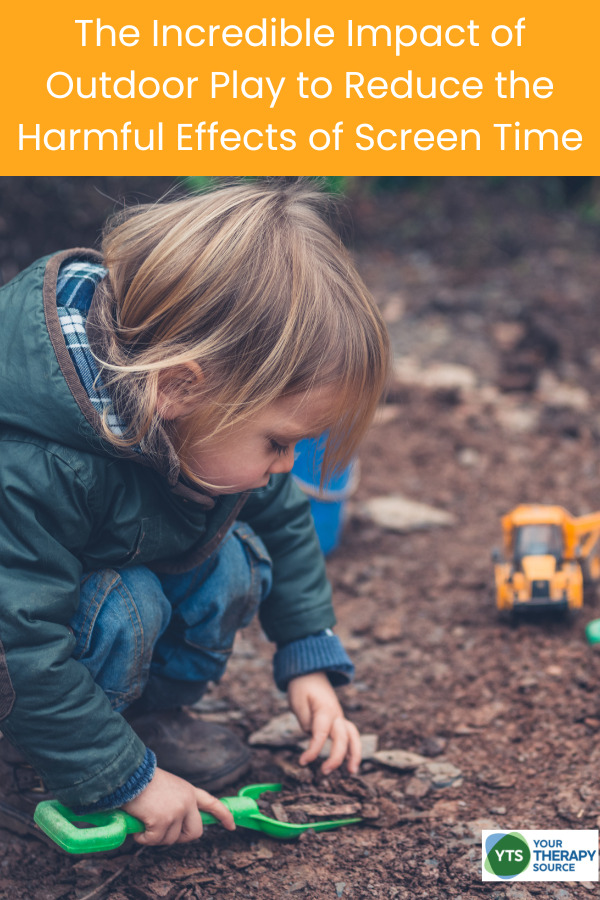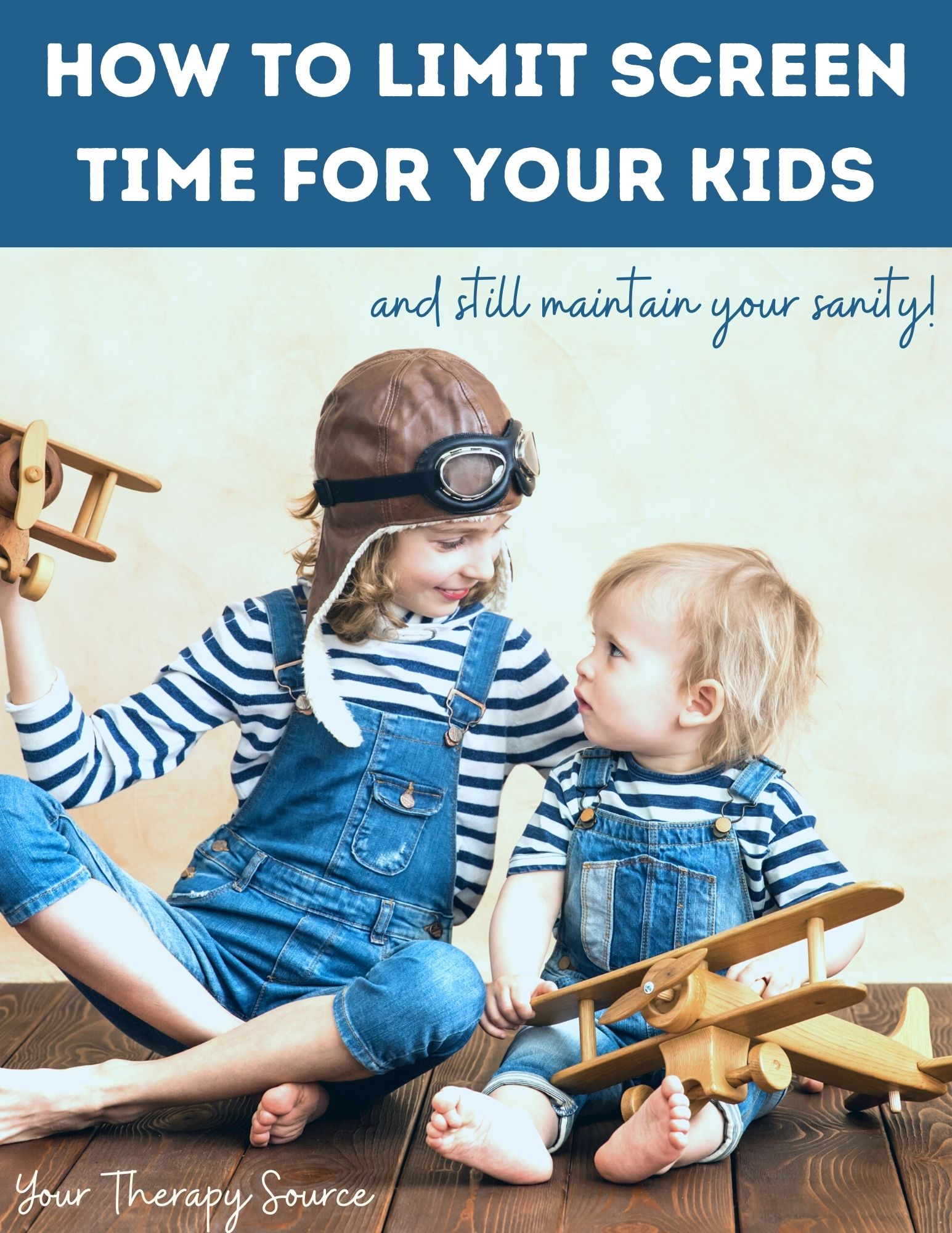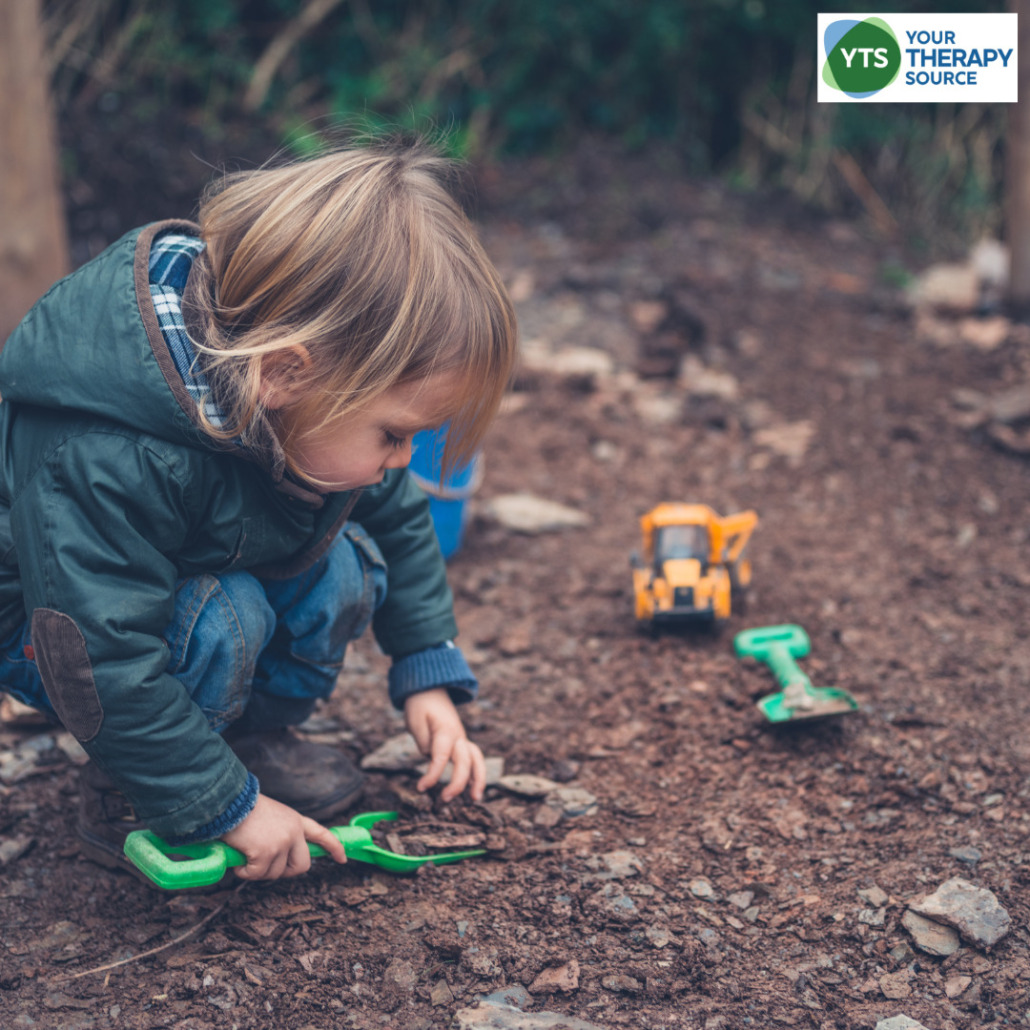The Incredible Impact of Outdoor Play on the Harmful Effects of Screen Time

Screen time in children under two years of age is a growing concern as the use of digital devices becomes increasingly prevalent in our daily lives. Research suggests that excessive screen time at such a young age can negatively affect children’s development, including cognitive, emotional, and social aspects. As parents and caregivers, it is crucial to understand the potential risks associated with early exposure to screens and to implement strategies that can help mitigate these effects. By promoting a healthy balance of age-appropriate activities, limiting screen time, and encouraging social interactions and outdoor play, we can support the optimal development of young children in today’s technology-driven world. Learn more about the incredible impact of outdoor play on the harmful effects of screen time.

How to Reduce Screen Time for Kids Ebook
WHY IS EXCESSIVE SCREEN TIME HARMFUL TO YOUNG CHILDREN?
Excessive screen time can be harmful to young children under five years old for several reasons, including impacts on cognitive, social, emotional, and physical development. Here are a few key studies and references that explain these detrimental effects:
- One study found that exposure to fast-paced, fantastical television shows negatively affected young children’s executive function, which includes skills such as attention, problem-solving, and self-regulation (Lillard & Peterson, 2011).
- Researchers found that higher levels of electronic media use in early childhood were associated with poorer well-being, including emotional and behavioral difficulties and lower family functioning (Hinkley et al, 2014).
- Other research demonstrated that increased media exposure in infancy was associated with negative outcomes in language development and cognitive skills (Tomopoulos et al, 2010).
- This report reviews the existing literature on digital media use in children and adolescents and provides guidance on screen time limits. For children under 5, the report suggests that excessive screen time can lead to sleep disturbances, obesity, and delays in social and emotional development (Chassiakos et al, 2016).
Read more about the risks of excessive screen time for children.
WHAT DOES THE RESEARCH SAY ABOUT THE IMPACT OF OUTDOOR PLAY ON SCREEN TIME EFFECTS?
Researchers wanted to find out if spending a lot of time in front of screens at age 2 affects kids’ development at age 4. They also wanted to see if playing outside could help lessen the negative effects of too much screen time.
The study included 1,258 children who were part of the Hamamatsu Birth Cohort Study for Mothers and Children. The kids were followed from 1 year 6 months to 4 years old. The researchers looked at how much screen time the children had at age 2 and whether they played outside frequently at age 2 years 8 months.
They found that children who spent more than an hour a day on screens at age 2 had lower communication and daily living skills at age 4. Playing outside frequently at age 2 years 8 months helped reduce the negative effects of too much screen time on daily living skills. In fact, 18% of the connection between screen time and lower daily living skills was lessened by playing outside often.
Interestingly, playing outside was also linked to better socialization skills, while more screen time was not associated with any changes in socialization. This suggests that outdoor play is important for kids’ development and can help balance out some of the negative impacts of spending too much time in front of screens.
Based on these findings, parents and teachers should encourage children to spend more time playing outside, especially if they have a lot of screen time. Outdoor play can not only improve communication, daily living, and socialization skills but also provide a healthy and active lifestyle for kids. Future research should focus on figuring out the best ways to help kids reduce screen time and increase outdoor play, so they can grow up healthier and happier (Sugiyama et al, 2023).
WHAT ARE THE SCREEN TIME RECOMMENDATION FOR YOUNG CHILDREN?
American Academy of Pediatrics (AAP) recommends that:
- children under 18 months should avoid screen time, except for video chatting.
- children aged 18 to 24 months, high-quality programming is advised, and parents should watch with their children to help them understand what they are seeing.
- children aged 2 to 5 years, the AAP recommends limiting screen time to one hour per day of high-quality programs.
Parents and caregivers should be mindful of the potential risks of excessive screen time and promote a healthy balance of outdoor play and other activities to support optimal development in young children. (AAP, 2016).

Sidewalk Chalk Fun and Games
KEY POINTS TO REMEMBER ABOUT THE IMPACT OF OUTDOOR PLAY ON THE HARMFUL EFFECTS OF SCREEN TIME
- This study found that spending more than an hour a day on screens at age 2 can lead to lower communication and daily living skills at age 4.
- Playing outside frequently at age 2 years 8 months can help reduce the negative impact of screen time on daily living skills.
- Encouraging outdoor play may be a good way to help improve kids’ development when they spend too much time in front of screens (Sugiyama et al., 2023).
Provide your children and students with engaging activities that encourage emotional, social and physical development.
LEARN MORE ABOUT HOW TO REDUCE SCREEN TIME
Calming Techniques for Kids without Using a Screen
References:
American Academy of Pediatrics (AAP). (2016). Media and Young Minds. Pediatrics, 138(5). https://doi.org/10.1542/peds.2016-2591
Chassiakos, Yolanda R., et al. “Children and Adolescents and Digital Media.” Pediatrics 138.5 (2016): e20162593.
Hinkley, T., Verbestel, V., Ahrens, W., Lissner, L., Molnár, D., Moreno, L. A., … & De Bourdeaudhuij, I. (2014). Early childhood electronic media use as a predictor of poorer well-being: a prospective cohort study. JAMA Pediatrics, 168(5), 485-492.
Lillard, A. S., & Peterson, J. (2011). The immediate impact of different types of television on young children’s executive function. Pediatrics, 128(4), 644-649.
Sugiyama, M., Tsuchiya, K. J., Okubo, Y., Rahman, M. S., Uchiyama, S., Harada, T., … & Nishimura, T. (2023). Outdoor Play as a Mitigating Factor in the Association Between Screen Time for Young Children and Neurodevelopmental Outcomes. JAMA pediatrics.
Tomopoulos, S., Dreyer, B. P., Berkule, S., Fierman, A. H., Brockmeyer, C., & Mendelsohn, A. L. (2010). Infant media exposure and toddler development. Archives of Pediatrics & Adolescent Medicine, 164(12), 1105-1111.



